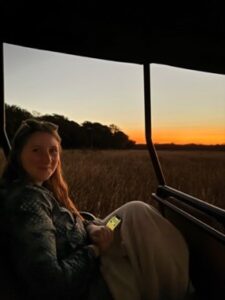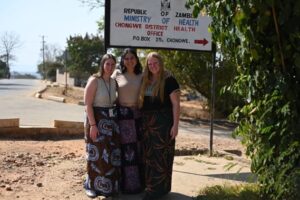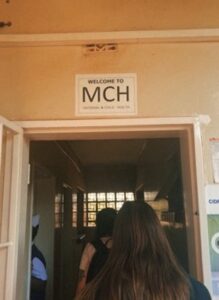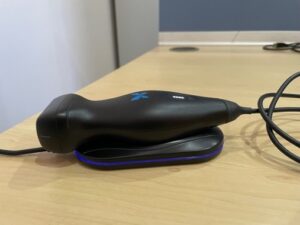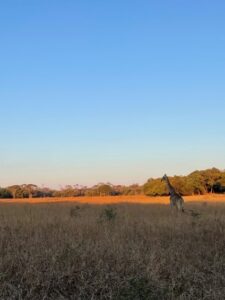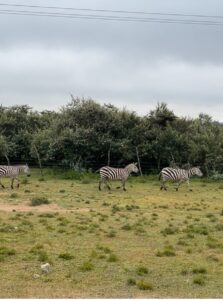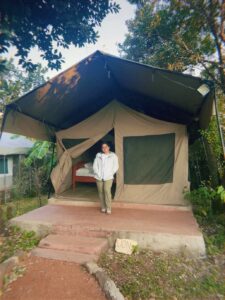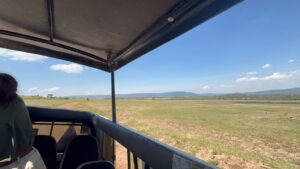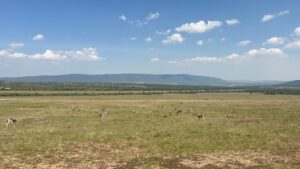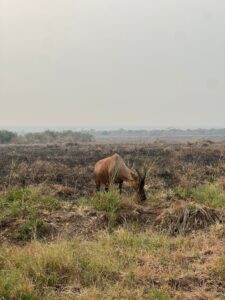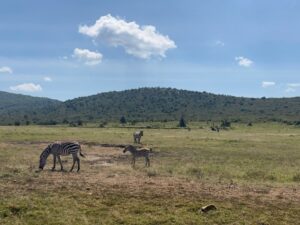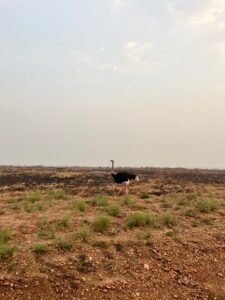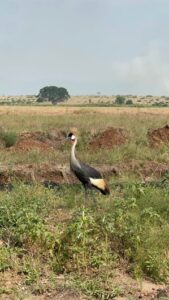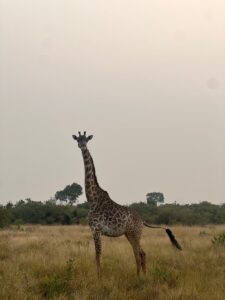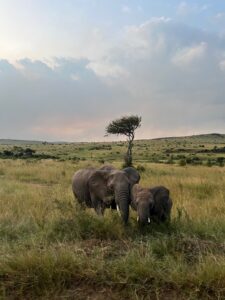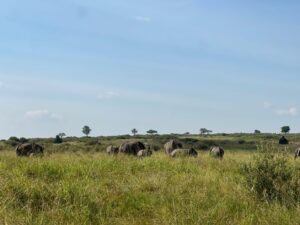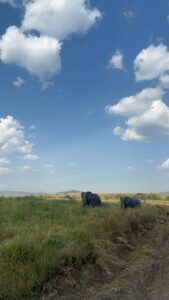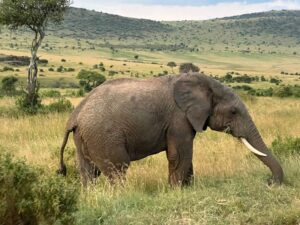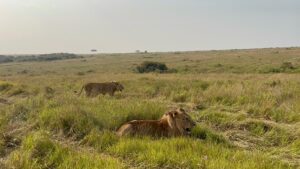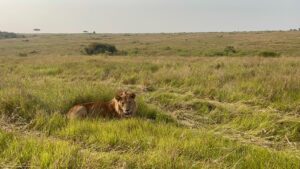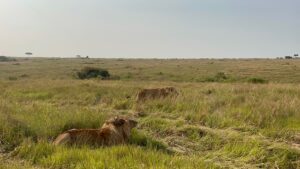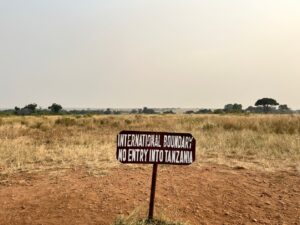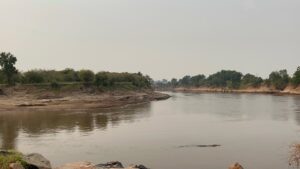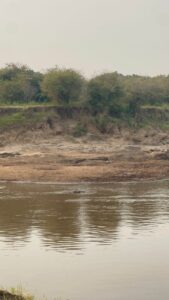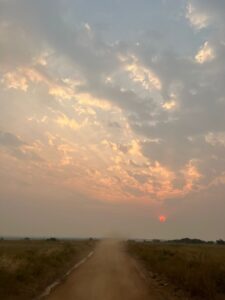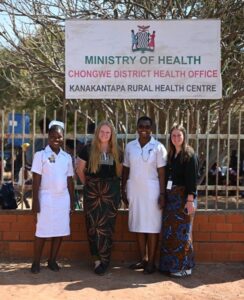
Time seems to have both crawled and flown by, and I now find myself in the final week of my practicum in Zambia. This internship has provided invaluable insights into the nuances of global health, offering both a broad perspective and hands-on, fieldwork experience.
I joined a small evaluation team at Global Projects Zambia (GPZ), comprising of myself and three others. This setting allowed me to gain an intimate understanding of evaluating a pilot research and implementation program. With the guidance of my mentor, I contributed to the creation of many implementation and evaluation tools, including in-depth interview guides, focus group discussion guides, a rapid qualitative analysis plan, community sensitization materials, a time-motion/flow mapping study, and inclusion criteria for every evaluation element. The meticulous process of drafting, piloting, revising, and finalizing each document involved close collaboration with my team. Regular meetings with the community team were also essential to coordinate piloting our evaluation tools, plan their rollout, and strategize on community sensitization and engagement efforts. This involved engaging with headmen, clinical staff, and women’s groups in rural communities to foster awareness and reduce apprehension about our study. These tools will long outlive my time in Zambia; and hopefully their impacts will be felt for years to come. The project itself which we have spent months (and the team at GPZ years) dedicated to is revolutionary, bringing hand-held ultrasound probes to communities that otherwise would not have access to ultrasounds. This helps detect gestational age and fetal abnormalities, allowing physicians to prepare ahead of a high-risk birth. While still in the piloting phase, it is inspiring to see first-hand the impact that it can have on rural communities across the globe.
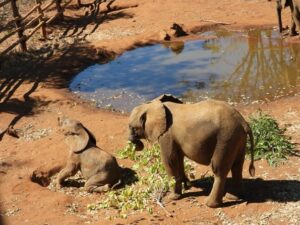
Over the past few months, I have had the opportunity to visit four rural health clinics, one urban clinic, and one urban hospital across three districts in Zambia. Before these visits, our team gifted us Chitenge’s—multi-purpose, patterned fabrics used as wraps, baby carriers, and blankets—ensuring we dressed appropriately for the communities we visited. One clinic, near the Kafue River, introduced us to the local community, where we observed hand-made canoes, fishermen, and women sorting and selling fish. Each rural clinic we visited was situated along long, desolate dirt roads. Despite the varied geography and infrastructure, enthusiastic healthcare workers, many of whom were underpaid or volunteered, greeted us warmly at each site. An overflow of expecting mothers could always be found waiting in hallways, on benches, and under the shade outside the clinics, with some having traveled over 17 km to reach the facilities.
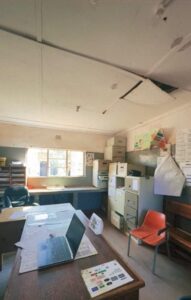
At Kanakantapa Rural Health Center, I felt a deep connection with the team of nurses and midwives. Their eagerness to share their knowledge and experience was heartwarming, and they invited me to return and assist with their data. I have since returned twice, spending days learning from these incredible women, which has further enriched my understanding of the local communities and their languages. These visits have instilled in me immense respect and admiration for these healthcare workers who tirelessly serve their communities, seeing upwards of 200 patients a day, going into communities to administer vaccinations, and providing holistic care. Midwives and nurses prescribed antibiotics alongside traditional teas and soups, never dismissing a patient without treatment but always mindful of their limited resources.
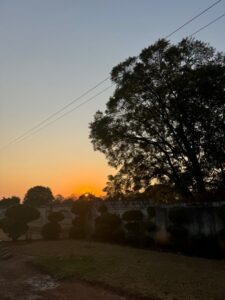
Witnessing the work which I have long studied has been an experience I will always cherish. I learned that many clinics, despite their limited staff, often have volunteer midwives due to inadequate funding. This shortage is not due to a lack of need, training, or qualifications but rather insufficient funding. The shortage of clinicians across Zambia means many medical students complete their residencies unpaid, and there are not enough paid midwifery positions for graduates. This is likely due to funding allocation and the lack of prioritization of maternal and child health. It raises the question of why society does not prioritize women’s health, especially when every clinic is overwhelmed with patients. At Kanakantapa, the midwives had me assist with documentation and patient care. When I thanked them for the unforgettable experience, Sister Harriet stated, “Of course, what good is knowledge if you don’t share it?”
Every clinic we visited had open-barred windows letting in the breeze, broken furniture, peeling paint, piles of patient records, vaccination charts, posters hanging off the walls, playful babies, passionate healthcare workers, and resilient women banding together to share information and support each other. It is a beautiful testament to the strength and solidarity of women worldwide, no matter where you are, women will come together to create networks of support for one another. I am incredibly grateful to have called Lusaka home this summer, and I know I will carry this experience with me into all my future endeavors.
Madisyn

